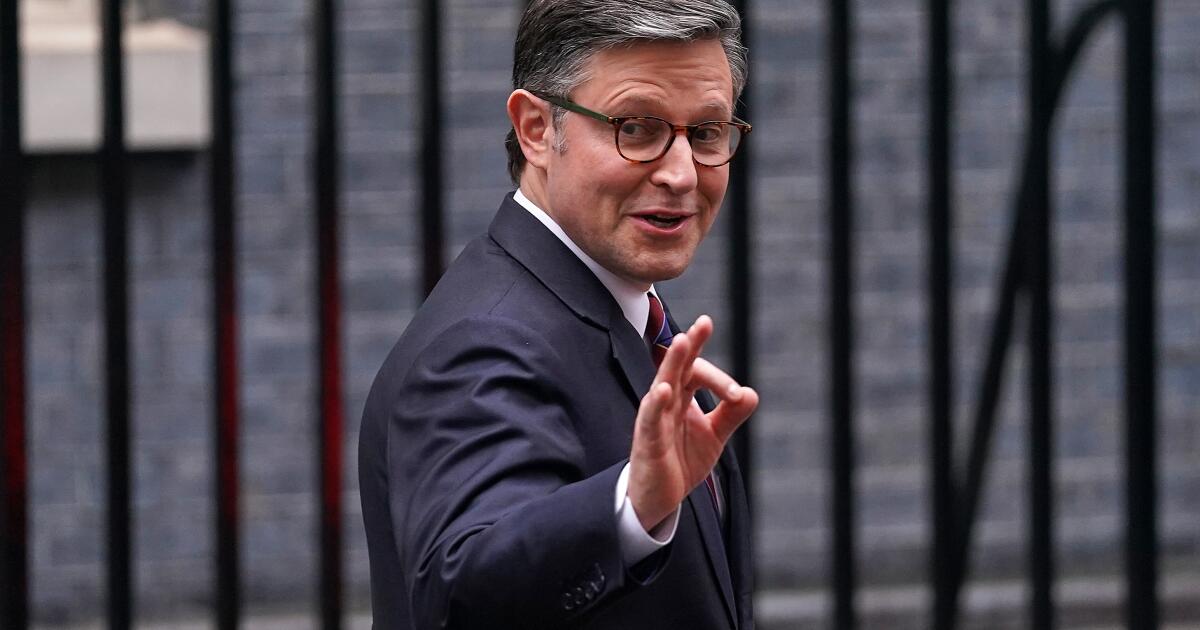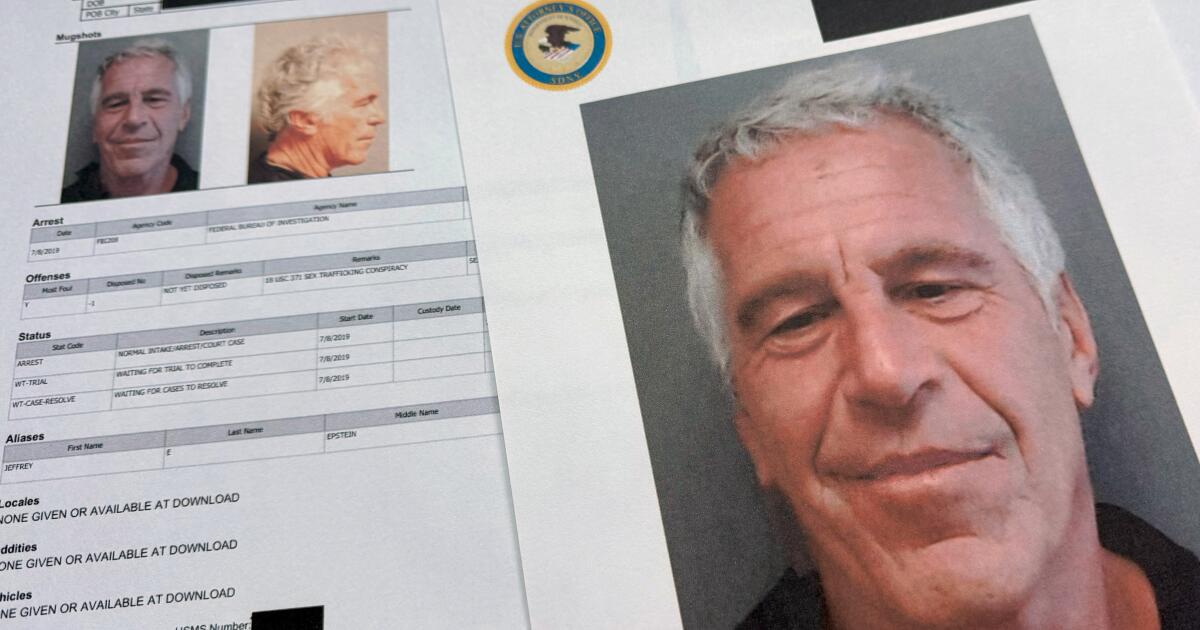Hollywood heavyweights are joining a mounting wave of resistance against Immigration and Customs Enforcement after federal agents on Saturday fatally shot intensive care nurse and U.S. citizen Alex Pretti.
The shooting occurred in Minneapolis, where protests erupted over the weekend after an ICE agent earlier this month shot and killed another Minnesota resident, Renee Nicole Good, 37, during an enforcement operation. Similar demonstrations started cropping up in weeks prior as the Department of Homeland Security launched a sweeping immigration crackdown in the Twin Cities.
Although government officials have claimed that Good and Pretti were both aggressors in their altercations, footage captured by bystanders appeared to contradict those claims.
Olivia Rodrigo, Pedro Pascal and other film, television and music industry notables condemned ICE on social media in the wake of its operations in Minnesota and across the country. (Likewise, attendees at the Sundance Film Festival, including Edward Norton and Olivia Wilde, criticized ICE’s actions and lauded the public for protesting them.)
Here is a list of celebrities who have spoken out.
Olivia Rodrigo
The pop rock singer slammed ICE in an Instagram story on Sunday, writing that the agency’s “actions are unconscionable, but we are not powerless.”
“Our actions matter,” Rodrigo continued. “I stand with Minnesota.”
The “Vampire” songstress also reposted a call to action by political commentator and digital creator Ben Sheehan, which called ICE a “murderous federal agency terrorizing an American city.”
“If you support this, you’re on the wrongest side of history you could possibly be on,” Sheehan wrote, urging social media users to call their senators and encourage them to filibuster an upcoming Homeland Security appropriations bill that would keep ICE funded at $10 billion for the rest of the fiscal year.
Pedro Pascal
“The Last of Us” star has shared several anti-ICE posts to his Instagram feed and stories. Earlier this month, Pascal described immigration enforcement activities as “unspeakable s— after unspeakable s—.”
Following Pretti’s shooting death, the actor wrote on Instagram, “Truth is a line of demarcation between a democratic government and authoritarian regime. Mr. Pretti and Rene Good are dead. The American people deserve to know what happened.”
Jamie Lee Curtis
The Academy Award winner has repeatedly condemned ICE’s actions in Minnesota, writing Saturday on Instagram, “Let the ICE storm of resistance ring loudly.”
Curtis also shared a statement from Pretti’s parents, which pleaded with readers to “get the truth out about our son.”
“The sickening lies told about our son by the administration are reprehensible and disgusting,” the statement said.
“Alex wanted to make a difference in this world. Unfortunately he will not be with us to see his impact.”
Katy Perry
The pop singer in a Monday Instagram post encouraged her followers to “turn anger into action” by calling their senators.
“The power is in your hands,” the post read, followed by a script encouraging senators to block the DHS funding bill.
Billie Eilish
The “Birds of a Feather” singer this week called out her industry peers’ silence on the immigration crackdown. Eilish herself has regularly reposted anti-ICE statements on her Instagram story.
“Hey my fellow celebrities u gonna speak up?” she wrote in an Instagram story Monday.
Eilish also shared a video from her brother and frequent collaborator, Finneas, in which he called the government hypocritical for allegedly shooting Pretti because he had a gun despite yearslong defense of gun owners’ rights.
“You’ve spent 30 years straight telling us that children have to die so that we’re allowed to legally carry weapons everywhere in the United States,” the artist-producer said. “This guy was being beaten to a pulp on the ground, he didn’t draw his weapon. He had a weapon on him legally.”
Eilish also spoke out against immigration enforcement earlier this month while receiving the 2026 MLK Jr. Beloved Community Environmental Justice Award.
“We’re seeing our neighbors being kidnapped, peaceful protesters being assaulted and murdered, our civil rights being stripped, resources to fight the climate crisis being cut for fossil fuels and animal agriculture destroying our planet, and people’s access to food and health care becoming a privilege for the wealthy instead of a new basic human right for all Americans,” the singer said.
“It is very clear that protecting our planet and our communities is not a priority for this administration,” she continued. “And it’s really hard to celebrate that when we no longer feel safe in our own homes or in our streets.”
Florence Pugh
The “Thunderbolts” star in a Monday Instagram story reshared a post from NBC News listing the people who have been fatally shot by DHS since September.
“1 person being murdered is harrowing enough. 12? Killed by masked people with guns,” Pugh wrote. “Morals. Even that seems too light a word to use when it’s actually ‘are you okay with people being killed or not’?”
“No matter which way you voted, what you politically believe, is death truly the option that you support?” she wrote.
Mark Ruffalo
In a pair of Bluesky posts, Ruffalo called Pretti a “hero.”
“Cold blooded murder in the streets of the USA by an occupying military gang, creating havoc,” the actor-activist wrote. “We have fought wars in other countries for less than this.”
Lin-Manuel Miranda
The “Hamilton” creator on Sunday collaborated with his parents, Luz Towns-Miranda and Luis A. Miranda Jr., on an Instagram post translating Pretti’s parents’ statement into Spanish.
“This cowardly violence cannot remain silent. We share his parents’ words en español because they deserve to be understood by everyone. Alex was a hero. And we demand justice,” the caption reads.
Glenn Close
The veteran actor in a Sunday Instagram post said she is “outraged and sickened” by the Trump administration’s actions: “The sickening hypocrisy, the blatant manipulation of facts and now the cold-blooded murder of American citizens.”
“I have felt for a long time that there are thousands and thousands of American citizens with cellars full of guns,” Close said. “I fear that ICE is giving them the excuse to pull the trigger.”
The “Fatal Attraction” star said the country is “waking up” to the threats posed to American democracy: “Mark my words: there will be hell to pay.”
Kerry Washington
The “Scandal” alum in a Monday Instagram post encouraged viewers to call their senators as she modeled the behavior on camera.
“The time to take action is now,” Washington captioned her video. “Let’s do it together. Because if you think what’s happening in Minneapolis cannot happen in your city or your state, it can.”
Cynthia Nixon
The “Sex and the City” star on Saturday claimed that Homeland Security Secretary Kristi Noem was spreading “morally reprehensible and disgusting lies” about Pretti and his killing.
Nixon also shared the statement from Pretti’s parents and encouraged viewers to do the same.
Busy Philipps
Philipps in a Saturday Instagram post reshared statements demanding justice for Pretti as well as the defunding of ICE.
“They will just keep murdering people and lying as long as they can,” the “Girls5eva” actor said, encouraging her followers to “take to the streets” and “boycott the businesses and people that support this.”
Martha Stewart
The television personality shared Monday on Instagram that her 14-year-old granddaughter — who is “sensitive to what is going on in our country as we all should be” — over the weekend messaged her, “I’m not sure it’s excusable to not be speaking up right now.”
Stewart said she took the sentiment to heart, writing, “I am disheartened and sad each and every day that we cannot demonstrate our sympathy for the beleaguered, that we are told immigrants, which most of us are or descended from, are unwelcome, that we cannot show our frustration in peaceful demonstrations and that we can be attacked and even killed by federal troops.”
“Things must and have to change quickly and peacefully,” she wrote.
Hannah Einbinder
The “Hacks” star in a Tuesday Instagram story said, “I’ve been trying to put my finger on why I have such a deep seated resentment towards people who haven’t used their platform to speak up against ICE.”
“I think it’s because, as a Jewish American in the diaspora, my entire life has been in the shadow of the Holocaust. I was given an in-depth education of exactly how a thing like that happens,” Einbinder wrote.
“I am watching the beginning of what took place in Germany before the Holocaust here in America and I take it incredibly personally when I see people with massive platforms refrain from using their voice to organize and rally their followers to try and stop it,” she continued, encouraging her industry peers and followers alike to stand up for immigrants.
The Chicks
“It’s happening right in front of us. They are killing Americans, disappearing human beings, and breaking up families,” country band the Chicks captioned a photo of a protest sign referencing their song “Not Ready to Make Nice.” (The group penned the ballad after lead singer Natalie Maines was widely slammed for criticizing then-President George W. Bush during a concert.)
“We cannot stand by and watch democracy disintegrate,” the band wrote. “Human decency isn’t Republican or Democrat. It’s American.”
Jonathan Van Ness
The “Queer Eye” star in a Saturday post on Threads wrote, “They charged tax payers $85 BILLION for ice to terrorize America. Tear gassing, beating, detaining innocent protestors / people, and they just killed another human being.”
Kristen Schaal
In an X post thanking fans for birthday well wishes, the comedian and “Bob’s Burgers” voice actor wrote, “I will remember this birthday as the day that Alex Pretti was held down on the street by 6 ICE agents and murdered. Shot to death. After he was sprayed in the face.”
Schaal continued: “I will remember @realDonaldTrump & everyone who works for & worships him saying this didn’t happen.”
Matt Rogers
The “Las Culturistas” co-host in a Monday Instagram story called for the abolishment of ICE: “This is too much collective pain for us to handle. It must stop.”
“Stop the terror and violence now,” Rogers wrote.
Kate Berlant
Berlant, who has previously spoken against ICE action in her native L.A., in a Tuesday Instagram story encouraged her followers to boycott the federal agency’s corporate collaborators, including Amazon, Whole Foods and Palantir.
Walton Goggins
“The White Lotus” star shared several anti-ICE posts over the weekend, writing in one Instagram story, “Alex Pretti was murdered. Renee Good was MURDERED. This isn’t about what political party any of us are affiliated with. This is about Humanity… this is … wrong.”
Mandy Moore
The “This Is Us” actor reshared media coverage of the events in Minnesota, writing, “We have eyeballs. We’ve seen the video. They executed someone else. I’m not sure how this ends. This is terrifying territory.”
Others including Ariana Grande, Jennifer Aniston, Amanda Seyfried, Hilary Swank and Justin Theroux have reshared anti-ICE content and resources for protesters on social media.



